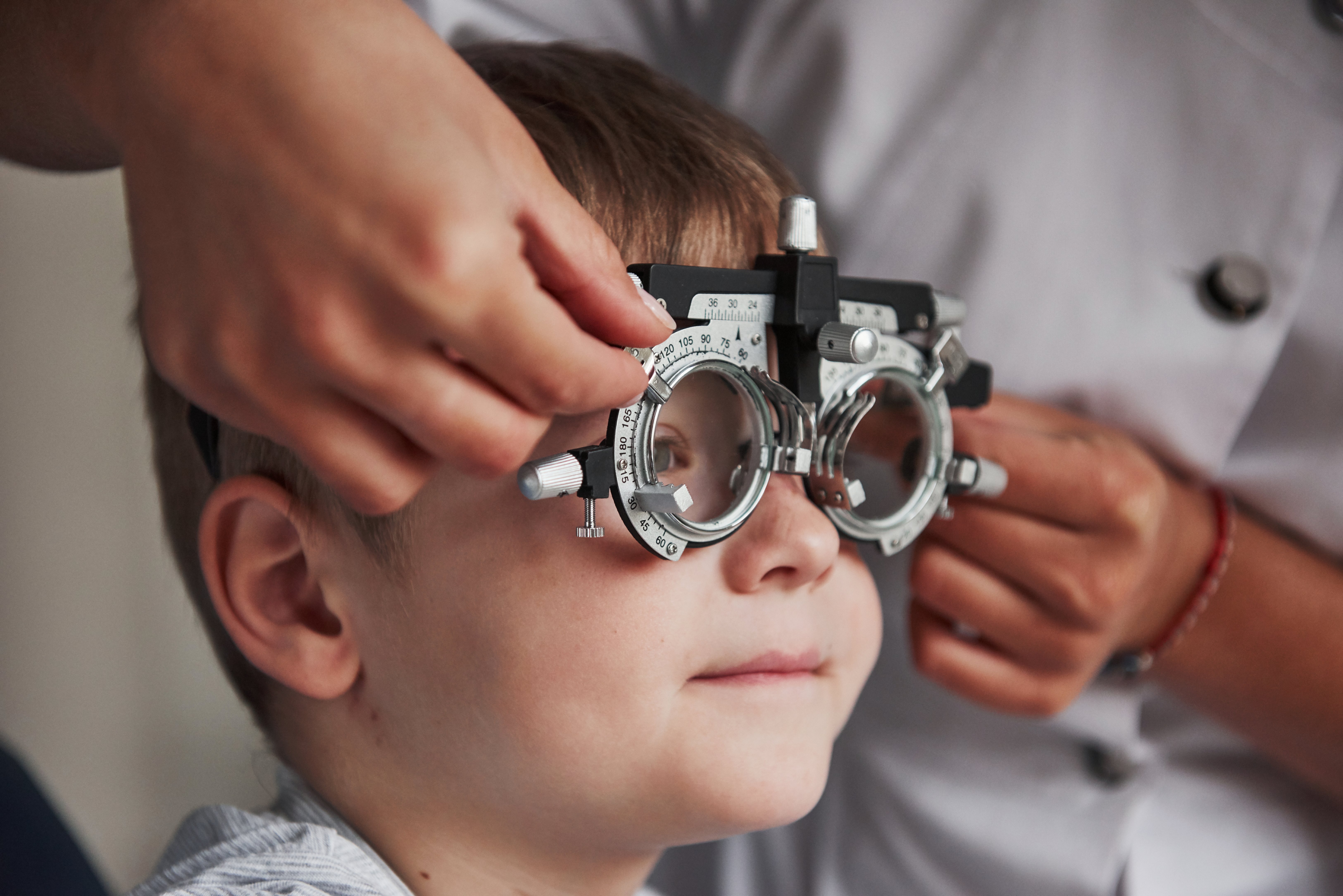
As a parent, you must prioritize your little one's eye health. Vision problems at a young age can significantly impact your child's overall development. It is best to schedule regular eye exams from a young age to ensure your child's eyes develop properly.
Even if infants and toddlers cannot read an eye chart, an eye doctor can check for common vision problems and detect early signs of any issues.
What Are Pediatric Eye Exams?
Pediatric eye exams at Today's Vision Bulverde are critical for detecting and treating vision issues in children. These examinations aim to detect common eye problems in kids. These include issues like nearsightedness, farsightedness, astigmatism, and lazy eye.
A pediatric eye exam will typically begin with a visual acuity test to assess the child's ability to see clearly at various distances. The eye doctor will also examine the child's eye focus, movements, and alignment. They may dilate the pupils to examine the inside of the eye.
Why Should You Schedule Regular Pediatric Eye Exams?
It is critical to begin eye exams early because some eye problems are easily treatable when detected early. That prevents them from becoming more significant problems later.
Scheduling regular eye exams for your child will help your eye doctor identify and address potential vision problems as soon as possible. That will give your precious child the best chance of getting healthy eyesight for the rest of their life.
When to Take Kids for Their First Eye Exam
According to the American Academy of Pediatrics, all children should undergo their first comprehensive eye exam at six months. An ophthalmologist or a pediatric optometrist trained to examine infants and young children should perform this exam.
The doctor will assess visual acuity, check for any structural issues with the eyes, and look for any signs of eye muscle problems. During this exam they will also look for other issues affecting vision development.
Subsequent Pediatric Eye Exams
Even if there are no apparent signs of an eye issue, it is best to maintain regular eye exams. The following exam should take place at the age of three, before starting school, or around the age of five. That is significant because some vision problems, such as amblyopia, can go undetected until a child is older. However, early detection and treatment can help prevent vision loss.
You should schedule an eye exam for your child as soon as possible if:
Your family has a history of eye problems
Your child was prematurely born
Your little one has other health conditions that can affect vision
Your child exhibits signs or symptoms of vision problems, such as squinting, frequent eye rubbing, excessive tearing, or frequent headaches
Bottom Line
The American Academy of Ophthalmology recommends that parents schedule regular eye exams for their children. They should happen at six months, three years, and before the child enters first grade, or at least by age five.
You should book an eye exam immediately if your little one exhibits any signs or symptoms of eye or vision problems. These signs include squinting, frequent eye rubbing, excessive tearing, or headaches.
For more on pediatric eye care, visit Today's Vision Bulverde at our San Antonio, Texas, office. Call (210) 307-4749 to schedule an appointment today.







